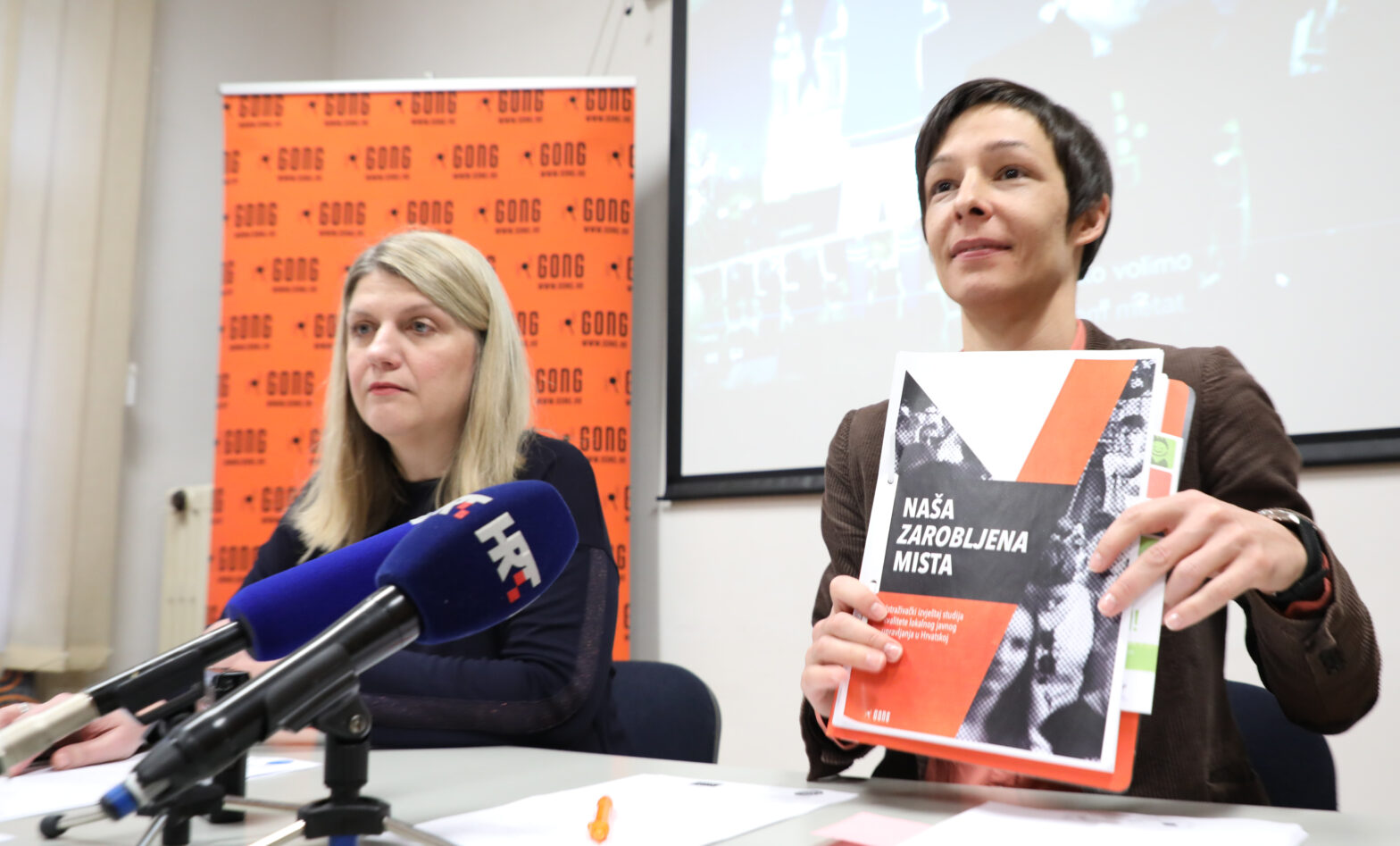Gong is requesting a withdrawal of anti-corruption proposal by which organisations have to cooperate with the city or county leaders, for Zagreb, that means cooperating with Milan Bandić.
Gong requested that the Government Office for Cooperation with NGOs withdraws and changes the terms of 85 million Kuna worth anti-corruption proposal by the European Social Fund (ESF) on Monday. For the implementation of the project, the proposal stipulates the organisations have to cooperate with cities, municipalities or counties in which they want to fight corruption.
Gong warns that it is a problematic stipulation because it puts the organisations in conflict of interest, which is therefore institutionalised and disables the realisation of the purpose of the proposal. It requires that the Office distributes the European money only after an e-consultation, which is, in this case, bypassed without any explanation.
“If the stipulations of the proposal do not change, 85 million Kuna from the ESF, intended for the anti-corruption project at a local level will be spent on a project that will not make significant changes in the anti-corruption fight at a local level. The goal, ultimately, will not be reached, regarding the ESF and the citizens, who, as taxpayers, give money into that fund,” warned the executive director of Gong, Jelena Berković during the press conference “How to fight corruption with Milan Bandić”.
Gong points out that the organisations can, in principle, cooperate with local leaders, but warns that, if the implementation of anti-corruption projects is stipulated by partnering up with “local sheriffs”, it can lead to watering down of the project ideas.
Not even the best ideas will be able to pass if they are designed by the organisations that gather the whistle-blowers or point out the corruptive risks and moves of “local sheriffs”, because the leaderships of towns, municipalities and counties are given a chance to pick a partner organisation that will not question the causes of the local political corruption.
In case of Zagreb, which is the centre of 12.000 organisation, it means that the stipulations for projects are appointed by the major Milan Bandić, who has dozens of corruption affairs, indictments and ongoing trials, and does not answer to concerning findings of the state audit and reporters’ questions, warns Gong.
Organisations are put in the position of the racketeered
It seems that political coalitions in Zagreb, where the City Assembly supports Bandić, and on the national level, where Bandić holds the majority and influences the voting results via his party and parliamentary group, started to switch to organisations, says Berković.
The organisations are put in the position of the racketeered – they can choose whether to cooperate with the county governors, majors and municipality heads by choosing more benign ideas for projects, or do something that would really affect the prevention of corruption, but without the support of the leaders, they cannot do that, warns Berković.
She said that research like Gong’s “Naša zarobljena mista” (“Our enslaved towns”), as well as other in-depth research shows that, at a local level, within 576 units, there are a lot of those that do not have their hands clean, so the organisations should not partner up with them, but expose their corruption.
Gong wrote to relevant institutions – the Office for Cooperation, the Ministry of Labour and Pension System and the Monitoring Committee for the Human Resources Development Operational Programme, asking the withdrawal of the proposal and a new proposal announcement with stipulations changed. The initiative was supported by around 20 civil society organisations.
Gong is a Centre of Knowledge in the area of Civil Activism and the Building of Democratic Institutions within the framework of Development Cooperation with the National Foundation for Civil Society Development.


